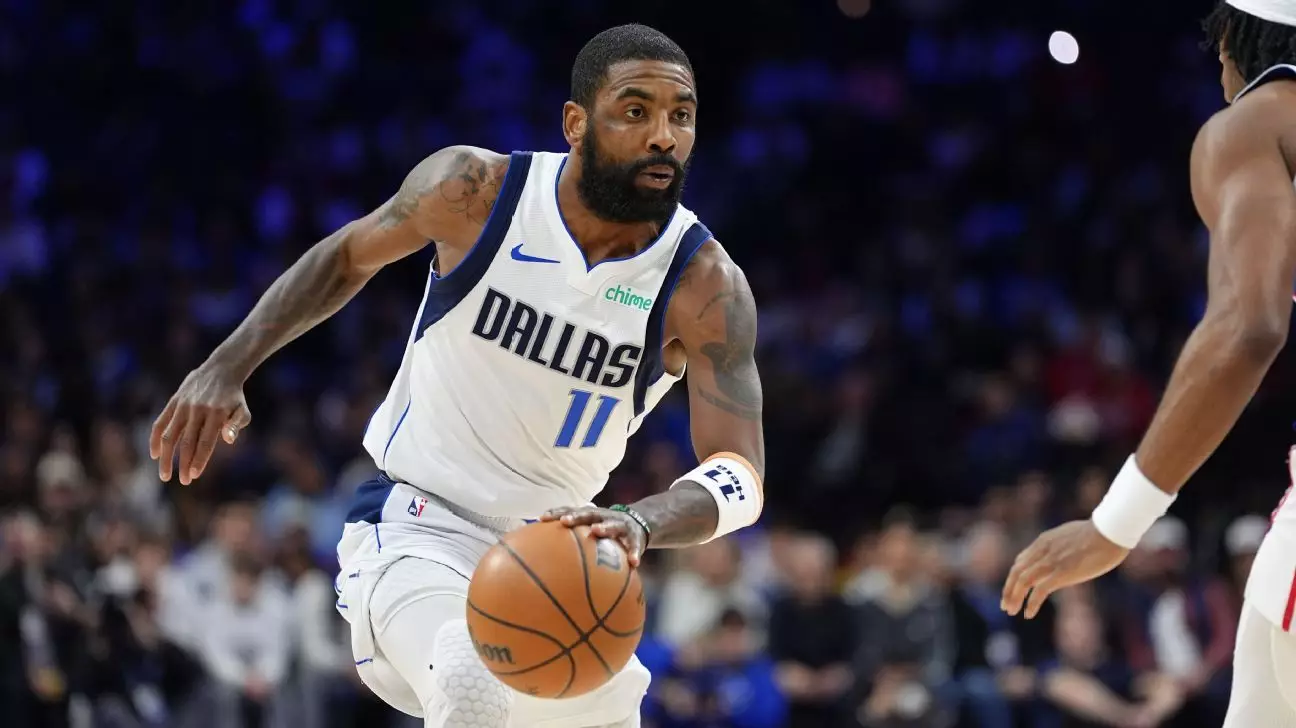Kyrie Irving, the Dallas Mavericks’ luminary, has recently ignited a buzz in the basketball community by expressing his desire to play for Team Australia. With an impressive career already highlighted by a gold medal from the 2016 Rio Olympics as a member of Team USA, Irving’s potential shift to the Australian national team reflects a multifaceted narrative regarding identity, eligibility, and international competition in basketball. Given his Australian roots—being born in Melbourne—this transition appears to be both a personal and strategic move.
The Eligibility Puzzle
During a press conference at the All-Star Weekend, Irving revealed that he is actively seeking avenues to secure eligibility to represent the Boomers in the highly anticipated 2028 Los Angeles Olympics. The 32-year-old athlete inherently understands that this isn’t just about changing jerseys; it involves grappling with significant bureaucratic hurdles. “There’s a lot of paperwork in between that,” Irving remarked, shedding light on the complexities of this potential transition. Approval from USA Basketball, FIBA, and Basketball Australia is essential for him to don the green and gold.
Irving’s contemplation of a switch comes after notable omissions from the past two Team USA rosters. Despite his skill and talent, he was sidelined during the last two Olympic games, which makes his desire to pursue national pride with Australia all the more poignant. As the Australian team earned a bronze at the 2020 Tokyo Olympics and narrowly missed a podium finish at the 2024 Paris Games, Irving could bring a wealth of experience and star power that could elevate the Boomers on the international stage.
While Irving’s ambition to represent Australia may raise eyebrows among fans of Team USA, it’s crucial to appreciate the evolving landscape of international basketball. Players increasingly seek to redefine their legacies, often influenced by personal histories and changing international dynamics. Irving’s reported conversations and aspirations highlight a growing trend of athletes recognizing the importance of national identity and personal fulfillment beyond the confines of a singular national team.
Such decisions can be deeply personal. For Irving, joining Team Australia may not merely be about winning or losing in the Olympics; it represents an exploration of identity, belonging, and the connection he has to his birth country. Furthermore, as the game of basketball continues to globalize, players possessing dual nationalities might prioritize national loyalties differently than in previous decades.
As Irving navigates the complexities of this possible transition, the basketball community watches closely. His decision could have significant ramifications not just for his career but also for both national teams. The Boomers, with their existing strengths and the drive for Olympic success, would undoubtedly enhance their competitiveness with a player of Irving’s caliber. Conversely, Team USA may need to reassess its roster strategies when losing a player of Irving’s experience and skill set.
Kyrie Irving’s potential re-alliance with his Australian roots presents a fascinating case study in modern sports. His aspirations reflect larger themes of identity, eligibility, and the evolving nature of international competition, encapsulating how personal heritage and ambition can intertwine in the pursuit of athletic excellence.


Leave a Reply